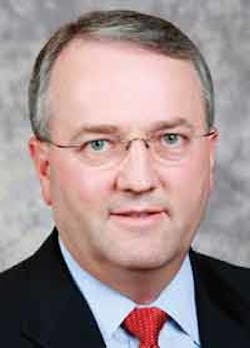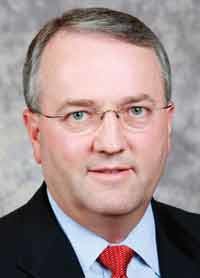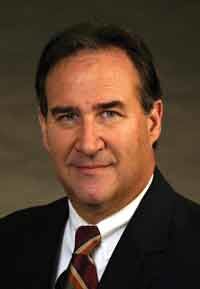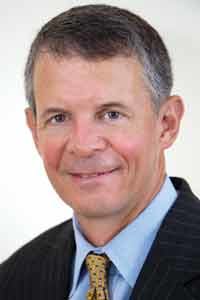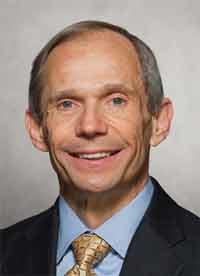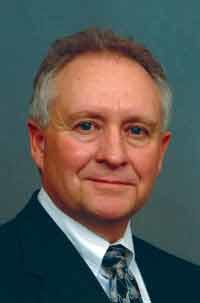Industry seizes opportunities amid challenges in election year
Conventional wisdom dictates that not much gets accomplished in Washington, DC, when it's a presidential election year. Leading oil and gas association executives think 2012 could be different, with considerable opportunities amid significant challenges.
"Every prospective year will be pivotal, but we're going into 2012 with much great promise to produce more oil and gas; to generate more jobs; to produce move revenue for federal, state, and local governments; and to make the United States more energy secure," American Petroleum Institute Pres. Jack N. Gerard told OGJ on Jan. 6.
Two days earlier, API had launched "Vote 4 Energy," a program to help voters recognize energy, economic, and employment benefits from more aggressive development of US oil and gas resources, and support candidates who back such policies. The effort came in addition to Energy Nation, a 2-year-old program that encourages those who work in the industry to be more vocal and "educate the American public that we have a lot of energy in this country," Gerard said.
"We want the public to talk. We want employees to talk," he maintained, adding that social media already has created "a lot of buzz."
Growing US production not just of gas, but also crude oil, from tight shale formations is a significant bright spot in the recovering US economy, Independent Petroleum Association of America Pres. Barry Russell said on Dec. 15, 2011.
"It's on fire. Instead of just people in the industry talking about a 100-year gas supply, the president is discussing its implications too," Russell said. More than a month later, in his Jan. 24 State of the Union address, US President Barack Obama called for aggressive, but responsible, development of US gas resources.
Gas's bright future
"Natural gas has a bright future," Interstate Natural Gas Association of America Pres. Donald F. Santa said on Dec. 16, 2011. "Pipelines are an essential link. There are challenges, but they're more like speed bumps on a road to a very good place than barriers or show-stoppers." An otherwise hyper-partisan 112th Congress, which seemed to pass crucial bills only at the last minute, approved a federal pipeline safety authorization bill late in 2011 which Obama signed into law on Jan. 3.
National Ocean Industries Association Pres. Randall B. Luthi said the Obama administration's first 2 years were difficult for that group's members, even before the Apr. 20, 2010, Macondo deepwater well blowout and subsequent oil spill off Louisiana in the Gulf of Mexico. "That's why we find it interesting there's increased vocal emphasis on oil and gas," he told OGJ on Dec. 20. "As early as last spring, most Americans favored more offshore development. High prices at the pump haven't hurt this."
The administration's proposed US Outer Continental Shelf program for 2012-17 nevertheless schedules lease sales only in the central and western gulf, as well as off Alaska in the Beaufort and Chukchi seas following extensive analysis of potential impacts and emergency response capabilities. "The good thing is that it's moving ahead, but that's about all," Luthi said, adding that this 5-year program—the first in 25 years with no presidential withdrawals or congressional moratoriums—"treads the same water we've been treading."
Charles T. Drevna, president of American Fuel & Petrochemical Manufacturers, formerly the National Petrochemical & Refiners Association, said voters are looking for political leadership amid continue Washington impasses. "But if you look at what's targeted at petroleum refining, a little gridlock would go a long way," he told OGJ on Dec. 20, 2011.
Drevna particularly cited the US Environmental Protection Agency, which is developing regulations to limit greenhouse gas emissions, raise the allowable limit of ethanol in gasoline to 15% before its potential impacts have been fully studied, require Tier 3 gasoline formulations, and establish aggressive Corporate Average Fuel Efficiency targets.
Drevna said EPA is focusing heavily on refining because of the perceived "antihydrocarbon mentality" of the Obama administration. "If there was an affordable, viable substitute, that would be one thing. But there isn't…. Can EPA be harnessed somewhat? I don't know. But as we morph from NPRA to AFPM, we need to speak up."
Producers also targets
EPA also is the agency whose pending regulations would affect domestic producers, according to Lee O. Fuller, IPAA's vice-president of government relations. It's considering regulations covering the use of diesel fuel in hydraulic fracturing, applying the New Source Performance Standard to control wellhead and storage tank emissions, and regulations to control effluents from coalbed methane and shale gas production, he told OGJ.
Basically, the Obama administration is trying to expand federal regulation of oil and gas activities, Fuller said. "We think the regulatory issues will be challenging for the next several years because of this intensity to expand its regulatory reach under existing law," he said. "There are only so many ways to respond with a gridlocked Congress. It's difficult to pass a law expanding or restricting enforcement. Oversight lets House and Senate members ask for justifications, but their options are limited."
Fuller said the debate over fracing has made many states recognize that they need to actively, visibly protect their rights as primary regulators. "Many have changed their regulatory structures," Fuller said. "New York is notable because it couldn't revise or modify its system, and probably lost millions of dollars in revenue. Pennsylvania recognized that its regulatory program could evolve as it moved forward, and it has benefited. Colorado walked a fine line in revising its regulations. Its analytical work is very professional and well-grounded."
Extensive nationwide regulations won't be feasible because there are too many geographic and geologic differences, he said. "States have run programs for decades, but with tighter budgets they'll need to seek formulas to maintain their enforcement," Fuller said. "Even within our industry, the experience is very diverse. Trying to come up with an equitable structure for all the players will be a challenge for state legislatures."
Prolific supplies and experienced regulators suggest that most progress during 2012 will occur outside Washington, INGAA's Santa suggested. "Notwithstanding talk over 40 years of a national energy strategy or policy, it's the combination of markets and technology which have moved us closer instead of any kind of prescriptive energy plan," he said. "Gas is competing with coal now, even absent carbon legislation. We're seeing industrial gas use rebound because of gas prices which are among the world's lowest."
May rebuild industry
"It's huge—maybe the largest untold gas markets story," added Martin E. Edwards, INGAA's vice-president for legislative affairs. "It creates a lot of capacity to rebuild US industries. Its potential outstrips what's happening in the natural gas vehicle market, and it's happening by itself, without any government assistance."
NOIA and its members plan to continue emphasizing safety in developing an atmosphere to produce more oil and gas offshore, Luthi said. He cited lively discussions through the Center for Offshore Safety about how auditing would work, and whether it relates to API standards and practices. "The offshore industry particularly has shovel-ready jobs and projects ready to go," he told OGJ.
Outreach to states will emphasize jobs and how vendors beyond the US Gulf Coast benefit from offshore activity, Luthi said. "It reaches all 50 states. When you can tell a congressman from Indiana that a factor in his district makes widgets that wind up on an offshore rig, that's important," he said.
Luthi said other states will be watching Virginia as officials there work to get a federal offshore lease sale which US Sec. of the Interior Ken Salazar canceled following the Macondo accident and spill onto the next 5-year OCS program. "Any time you start discussing new revenue, which offshore royalties would be, there's interest," he observed. Technology has improved so dramatically in the last 25 years that extended reach drilling from a platform in federal waters could make it possible for one independent producer to tap resources beneath state waters off California, he said.
"There was increased direct communication between the industry and its regulators in 2011," Luthi continued. "It was strained for a while, but now it's improved. That will be the key to making post-Macondo regulation work in the US deepwater." Drilling of the first well offshore Cuba will also be closely watched, particularly amid efforts to make it possible for US companies to respond if there's a spill, he predicted.
Growing recognition that the US actually is energy-rich probably was 2011's most positive oil and gas development, AFPM's Drevna said. "When you look at what we can do with Canada, with all these onshore players, and with our offshore resources, the obvious question becomes: Why aren't we doing more?" he said.
'No substitutes'
"Let the public decide what it wants. That's what we're going to say in 2012," he said. "We're going to show them how vital our industry is to the economy and employment. We're critical, and there are no substitutes. This country's industries need to get back to being manufacturers. We have the education, the infrastructure, and the resources. We cannot, as a nation, let this opportunity go by."
Gerard said energy forums in 27 states that are led by individuals from outside the industry, combined with social media, have let API reach millions of people already. "What we've built here is unprecedented—and it's producing results," he told OGJ. "It's helped already in debates over taxes and proposed ozone standards, and it will be significant in the continuing debate over the proposed Keystone XL crude oil pipeline."
Forums engage in local as well as national issues, Gerard explained. One in Nebraska actively participated in discussions of the Keystone XL pipeline's proposed route across the state, while another in New York addressed Marcellus shale gas resource development, he said. "A forum leader in New Mexico is a law enforcement official who's keenly interested because much of the state's revenue comes from oil and gas, and his agency's budget to address border issues gets some of that revenue," Gerard said. "We're building these relationships and platforms through these energy forums. They're growing daily."
Alliances beyond the industry show how oil and gas isn't a partisan matter but "an American issue that impacts everyone," he added. There are 15 labor unions which are on API's labor-management committee, which Gerard described as "a very good relationship based on our shared interest." State petroleum councils, energy forums, and labor-management councils are actively engaged with state and local governments, and information is the best weapon against opponents, he said. "Vote 4 Energy is designed to keep the facts and reality prominent in the minds of the American people," he said. Gerard conceded that several members of Congress who have supported the industry in the past decided not to run for reelection this year, and they will be missed. "But there are also new, emerging leaders who understand this industry," he said. "We are making progress in expanding our base of support in the House, as evidenced by the 41 Democrats from producing states and labor-heavy districts who support Keystone XL.
"Those who understand the issues are trying to move the energy debate away from political parties and into the public interest," API's president said. "Over time, we'll see more bipartisan support for the oil and gas industry."
More Oil & Gas Journal Current Issue Articles
More Oil & Gas Journal Archives Issue Articles
View Oil and Gas Articles on PennEnergy.com
About the Author

Nick Snow
NICK SNOW covered oil and gas in Washington for more than 30 years. He worked in several capacities for The Oil Daily and was founding editor of Petroleum Finance Week before joining OGJ as its Washington correspondent in September 2005 and becoming its full-time Washington editor in October 2007. He retired from OGJ in January 2020.
